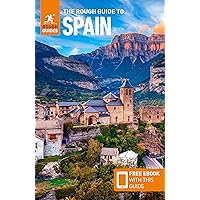Spain is a country that takes its festivals seriously, and sports often play a central role in these celebrations. From the Basque Country to Andalusia, sports and traditional games are woven into the fabric of local culture, offering a unique lens through which to explore regional identities. In the Basque Country, for example, rural sports known as ‘herri kirolak’ are a testament to the region’s agricultural heritage. These sports, including stone lifting and wood chopping, reflect the physical demands of rural life and are celebrated in festivals across the region. The Basque pelota, a fast-paced ball game, is also a staple of these gatherings, with its origins tracing back to ancient handball games. In Galicia, the ‘Festa da Istoria’ in Ribadavia is a medieval festival where participants dress in period costumes and engage in traditional games such as archery and medieval jousting. This celebration is a tribute to the region’s medieval past, with participants using replica weapons and armor. The festival culminates in a grand medieval tournament, attracting thousands of spectators. Meanwhile, in Castile and León, the ‘Lucha Leonesa’ is a traditional wrestling style that dates back to ancient times. This sport is featured in many local festivals, with competitors grappling in a circular ring. The ‘Lucha Leonesa’ is more than just a sport; it is a cultural heritage that has been preserved through generations. Andalusia, known for its passion and flamenco, also celebrates sports during its festivals. The ‘Romería del Rocío,’ one of Spain’s most famous pilgrimages, is not only a religious event but also a showcase of equestrian skills. Participants ride horses or travel in elaborately decorated wagons, competing in various horseback games along the way. The festival is a vibrant display of Andalusian culture, with music, dance, and sports blending seamlessly. In Catalonia, the ‘castells’ or human towers are a unique spectacle seen in festivals like the ‘Festa Major de Vilafranca.’ These towers, built by groups known as ‘colles,’ can reach impressive heights, with the smallest and lightest member, usually a child, climbing to the top to complete the structure. The castells are a symbol of Catalan identity and teamwork, and the tradition is recognized by UNESCO as part of the Intangible Cultural Heritage of Humanity. Moving to the Valencian Community, the ‘Fallas’ festival in Valencia is famous for its elaborate sculptures and pyrotechnics, but sports also play a role. During the festival, locals participate in traditional games such as ‘pilota valenciana,’ a handball game that has been played in the region since medieval times. The game is deeply rooted in Valencia’s history, with matches held in the streets, drawing crowds of enthusiastic spectators. In Aragon, the ‘Fiestas del Pilar’ in Zaragoza are a major cultural event, featuring bullfighting and other traditional sports. Bullfighting, although controversial, remains a significant part of Spanish culture, with deep roots in regions like Andalusia and Aragon. During the Fiestas del Pilar, the Plaza de Toros de Zaragoza hosts bullfighting events that attract aficionados from across the country. In the northern region of Asturias, the ‘Descenso del Sella’ is a canoe race held every August. Participants from all over the world gather to paddle down the Sella River, turning the event into a festive occasion with music, dancing, and local cuisine. The descent is not just a competition; it’s a celebration of Asturian culture and nature, with the picturesque landscape providing a stunning backdrop to the race. Finally, in the Canary Islands, the ‘Fiesta de San Juan’ in La Palma features the traditional sport of ‘lucha canaria.’ This form of wrestling, unique to the islands, is performed on sand, with wrestlers trying to knock each other off balance. The sport is a key part of the island’s cultural heritage, celebrated during the summer solstice with bonfires, music, and dance.
Spain’s wildest festivals: from bullfights to regional sports
Disclaimer
"Please note that the information provided on this website serves as a general guide. Requirements might vary depending on your country of origin. Always refer to up-to-date and official sources or consult the corresponding consulate for specific procedures. Keep in mind that the details shared in this article might have changed after its publication. It's essential to verify the most recent data, particularly concerning establishments like hotels or restaurants. SpainSeeker.com is not responsible for any changes or discrepancies."

Subscribe
Recommended books
Popular




